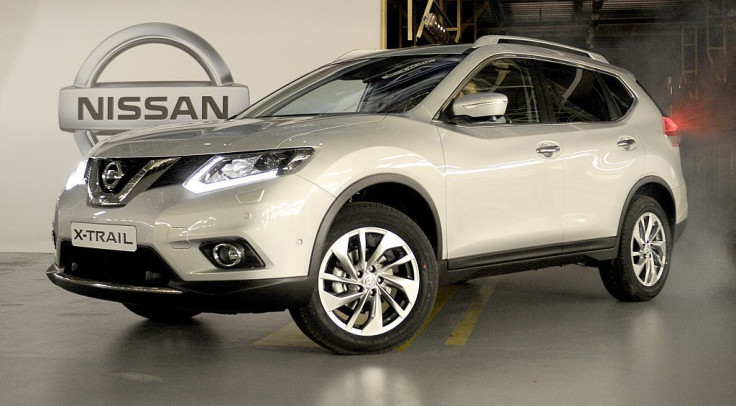No Deal Brexit: Nissan Scraps Plan To Build X-Trail In UK Over ‘Uncertainty’

Citing Brexit as the main reason, Nissan Motor Company, Ltd told employees at its Sunderland assembly plant that it has abandoned plans to produce the new Nissan X-Trail compact crossover SUV in the United Kingdom.
Nissan originally planned to produce the X-Trail at Sunderland but now said all production of the new SUV will be shifted to its plant in Kyushu, Japan. The company, however, took pains to assure the plant’s 7,000 employees none of them would be fired due to the modified production arrangement.
Nissan Sunderland has been in operation since 1986. In 2016, Nissan announced plans to build the new X-Trail in the U.K. after receiving positive assurances from the government.
Nissan decided to produce the X-Trail both at Sunderland and Kyushu because "there was a good business case (at the time) for bringing production to Europe, as well," said Nissan Europe Chairman Gianluca de Ficchy. This is no longer the case.
"The continued uncertainty around the U.K.'s future relationship with the EU is not helping companies like ours to plan for the future," explained de Ficchy.
He said Nissan is now planning "to optimize our investments and concentrate production in Kyushu, instead of adding another production site.” Nissan is also investing heavily in new technologies and powertrains for the next generation of vehicles in the Sunderland plant.
Nissan said Sunderland will, however, continue to manufacture several Nissan models. It also confirmed its commitment to manufacture the 2020 Nissan Qashqai, another compact crossover SUV, at Sunderland.
In a letter to Sunderland employees, Nissan said the relentless "uncertainty" engendered by Brexit is not helping it to plan for the future. Among the more worrying uncertainties are new barriers to trade such as higher tariffs.
Nissan pointed out that since 2016, when the Brexit referendum was won by the “Leave” vote, "the environment for the car industry in Europe has changed dramatically.”
Apart from Brexit, these changes include far tougher and costly emission regulations being imposed on new car models by the European Union (EU). For example, diesel cars made in the U.K. that fail to meet the latest EU emissions standards now have to pay hefty fines.
Adding to the uncertainty beclouding the horizon for European car makers is the U.K. and a number of European countries have announced they will ban both new diesel and petrol motor vehicles in the future.
Consequently, sales of new diesel cars in the U.K. plummeted by 30% in 2018, said the Society of Motor Manufacturers and Traders, the trade association that promotes the interests of the automotive industry at home and abroad.
There was dismay in London, the city government of Sunderland and British labor unions about Nissan’s decision to forego production of the X-Trail at Sunderland.
Unite the Union, the UK’s second largest labor union which also represents Sunderland workers, was disheartened at Nissan’s decision.
"This is very disappointing news for Sunderland and the North East and reflects the serious challenges facing the entire UK auto sector,” said Steve Bush, Unite’s acting national officer for the car sector.
He said Unite remains "seriously concerned" that "the apprenticeships and additional jobs that come with future investment and which this community so desperately needs will be lost.”
Sunderland Central MP Julie Elliott said Nissan’s decision was "devastating news for our city and the region.” Elliott remarked the uncertainty around Brexit is always a factor now in any decisions made in manufacturing.
© Copyright IBTimes 2025. All rights reserved.




















